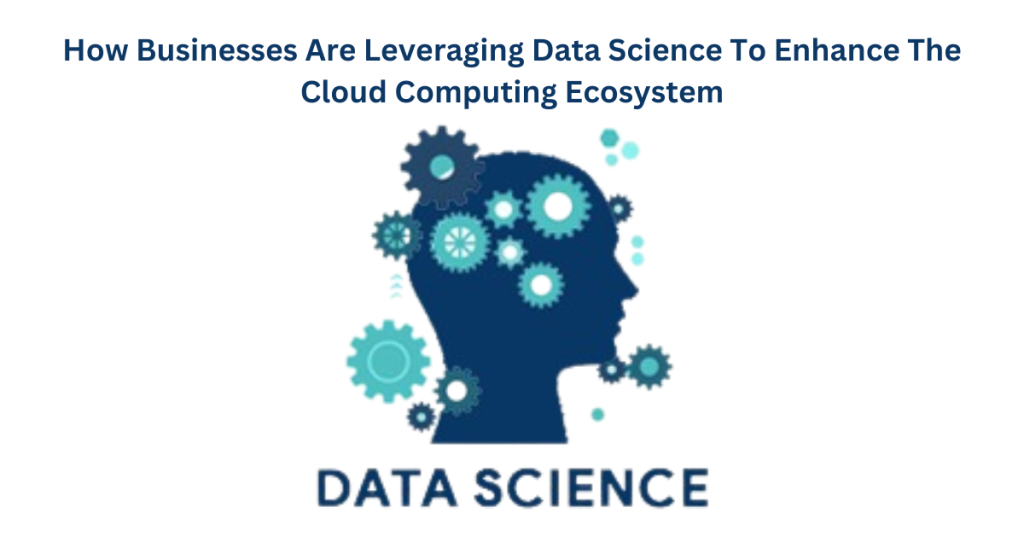
Introduction
Cloud Computing improves performance, reliability, scalability, data management, data mining, and visualization. It also accelerates the development and deployment of machine learning/data science applications, allowing for better project performance and scalability. Access to new technologies such as AI and Deep Learning is easier for organizations, and data scientists can take advantage of cutting-edge technologies like Big Data Analytics and Natural Language Processing.
The future looks bright for Data Science and Cloud Computing. Together, they will continue to revolutionize the way we do business by providing faster insights into customer behavior while minimizing costs. As more companies adopt these technologies, we can expect more advancements, making it an excellent tool for businesses to stay competitive.
How Businesses Are Leveraging Data Science To Enhance The Cloud Computing Ecosystem
Data science and cloud computing are essential tools for businesses seeking to enhance their digital presence. Leveraging data science in the cloud computing ecosystem provides a host of benefits, including increased performance and reduced costs. This article explores how businesses are using data science to enhance the cloud computing ecosystem and improve the user experience. Kelly Technologies Data Science Training in Hyderabad is the perfect way to get ahead in the data science industry.
One of the most common ways businesses are using data science in the cloud is by improving system performance. By applying predictive analytics, companies can make predictions about customer behavior and optimize their systems accordingly. Additionally, machine learning can enhance the user experience by providing personalized recommendations based on real-time feedback from users. This allows companies to provide tailored solutions that better meet customer needs while also providing them with a competitive advantage in the market.
Furthermore, adopting modern technologies, such as cloud native applications, enables powerful analytics algorithms to run quickly and efficiently in real-time, without any latency issues common with traditional methods like on-premise caching servers or dedicated clusters of machines hosted elsewhere around the globe – a major benefit for small to medium-sized enterprises who could otherwise not afford these types of setups due to capital expenses associated with implementing them successfully within existing infrastructure constraints.
Leveraging Data Science For Cloud Computing Adoption
The cloud is revolutionizing the way businesses operate. As more companies migrate to the cloud, data science has become a vital component of this evolution. This article explores how data science enhances the cloud computing ecosystem and its benefits for users.
Data science is instrumental in enabling organizations to improve their decision-making in the use of cloud computing systems. It enables them to examine different types of data kept in the cloud, such as customer behavior or financial information. Users can gain insights into their clients’ needs or enhance efficiency within their organization by leveraging data science approaches such as machine learning and artificial intelligence. Kelly Technologies offers comprehensive Data Science Training in Hyderabad is to help you become a successful data scientist.
Moreover, data science makes it easier for small and medium-sized ventures to benefit from the affordability and ease of use inherent in cloud computing. With data science-driven insights, these businesses can make informed decisions in real-time and reduce costs associated with traditional analysis methods. Additionally, data science significantly enhances user experience with cloud computing systems, as it simplifies access to on-demand resources with minimal user effort.
Benefits Of The Data Science In Cloud Computing
Organizations are investing heavily in big data and ensuring it remains in the cloud for decision-making and cost reduction purposes. This includes the use of data scientists who can manage different types of structured and unstructured datasets stored securely in a public or private cloud platform. Furthermore, technological advancements have made cloud technologies more accessible to users, granting access to pre-installed open-source software tools such as Apache Hadoop or Amazon Web Services (AWS). This makes it easier for developers without prior experience to develop algorithms that can automate business processes or identify patterns from large datasets stored on these platforms.
Cloud computing provides scalability and flexibility in data processing and storage, allowing firms to process enormous amounts of data at minimal overhead costs while maintaining high levels of security against cyber threats. This opens up opportunities for small businesses that may struggle to afford expensive on-premises servers or software licenses to get up and running rapidly, without significant investment in hardware or software.
Leveraging data science in cloud computing is proving to be a successful strategy for many organizations looking to adopt cloud infrastructures to boost performance, cut costs while maintaining high levels of security and scalability in the process. With Data Science gaining popularity, the future of cloud computing looks promising, with many new technologies being developed to make it easier for users worldwide to benefit from its advantages more efficiently than ever before.
Conclusion
This article in Trending Opine should provide you with a clear idea. Data science and cloud computing are two of the most important and impactful technologies of our time. They have revolutionized the way businesses access, analyze, and store their data, enabling organizations to gain insights from large datasets in a cost-effective way. Cloud computing has made it easier for businesses to scale up or down their resources with minimal effort. This combination of technologies is essential for companies looking to stay competitive in today’s digital age.
